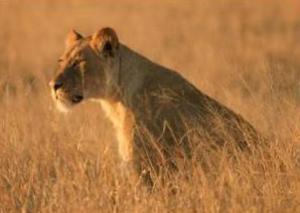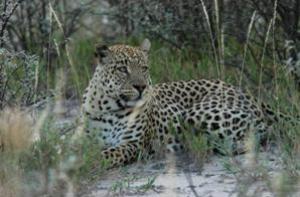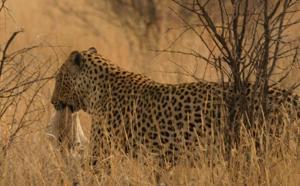David Mills & Monika Schiess
This project is aimed at reducing predation by lions on livestock in the area surrounding Khutse Game Reserve, thereby ensuring the stability of the lion population within the reserve.

Leopard Ecology & Conservation was established in 2000 by Monika Schiess-Meier. The primary goal of this project is to promote the long term viability of leopards in Botswana by learning about their home ranges, habitat use, health and population genetics both within protected areas and within farming areas. Leopards also frequently come into conflict with farmers. Our goal is to learn about and ameliorate this problem before the leopard becomes involved in the struggle for existence faced by nearly all top predators. We seek to prevent severe population decline rather than waiting to repair it.

The lifting of Botswana’s moratorium on lion killing in 2005, along with a subsequent increase in reports of livestock killed by lions in the area around Khutse Game Reserve, led us to include lions in our research. Our lion project is aimed at reducing predation by lions on livestock in the area surrounding Khutse Game Reserve. This will reduce the number of lions which are persecuted is problem animals and reduce the negative economic effects of wildlife on indigenous farmers. We expect to map lion home ranges and movement patterns around these cattle posts by using GPS collars, to identify the habits which are facilitating lion predation on livestock and to cooperate with farmers to develop protection methods (such as maternity kraals, improved kraal designs, alternative kraaling methods, etc.) which are appropriate to the situation and resources available to farmers in Botswana.

Ultimately, we aim to reduce this conflict to acceptable levels. Our efforts to develop these protection methods complement our ongoing leopard research and will have a broad application to conflicts with other predators and in other regions.
In addition to education concerning livestock protection, we also seek to foster a more positive attitude toward wildlife in general. Through community education, we encourage farmers and their families to appreciate the beauty of their unique surroundings, the value inherent in all living things and the importance of biodiversity and taking care of their local environment.